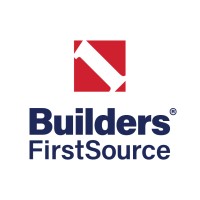
MCDONALD
McDonald is a company based out of Lurgan, United Kingdom.



McDonald is a company based out of Lurgan, United Kingdom.

Builders FirstSource is the nation’s largest supplier of structural building products, value-added components and services to the professional market for new residential construction and repair and remodeling. Our focus is on providing unparalleled service to both large and small customers. Through investments in innovation and an unmatched portfolio of value-added products and manufacturing capabilities, we’re revolutionizing the homebuilding industry – outperforming today and transforming tomorrow. Builders FirstSource and the Builders FirstSource logo are trademarks of Builders FirstSource, Inc. and/or its subsidiaries. © 2022 Builders FirstSource, Inc. All rights reserved. JOB SEEKERS: Beware of job scams and fake employment offers. It has come to our attention that fraudulent employment offers have been sent to job seekers by people who claim to be employees of Builders FirstSource (BFS). These scammers use a variety of tactics to engage with job seekers to commit identity theft, financial fraud, and other crimes. They can be very convincing, going as far as to steal the profile pictures of our actual recruiters from their LinkedIn profiles and using email addresses that contain words such as ‘@BuildersFirstSource’ or '@BFS.' The scammers will typically ask you to send money at some point (for equipment, training, or a uniform, etc.). A LEGITIMATE BFS RECRUITER OR HIRING MANAGER WILL NEVER ASK YOU TO SEND US MONEY. Also, you will never receive a job offer from us if we have not verbally interviewed you. If you ever receive an unsolicited or suspicious communication that demands any form of payment in connection with employment at BFS, you should consider it to be fraudulent and cease all contact with the sender. You can report US job scams to the FTC (www.ReportFraud.ftc.gov), your state attorney general, or econsumer.gov for international scams. You can also report any fraudulent activity to LinkedIn.
Security & Compliance Standards Overview












No incidents recorded for MCDONALD in 2025.
No incidents recorded for Builders FirstSource in 2025.
MCDONALD cyber incidents detection timeline including parent company and subsidiaries
Builders FirstSource cyber incidents detection timeline including parent company and subsidiaries
Last 3 Security & Risk Events by Company
Angular is a development platform for building mobile and desktop web applications using TypeScript/JavaScript and other languages. Prior to versions 19.2.16, 20.3.14, and 21.0.1, there is a XSRF token leakage via protocol-relative URLs in angular HTTP clients. The vulnerability is a Credential Leak by App Logic that leads to the unauthorized disclosure of the Cross-Site Request Forgery (XSRF) token to an attacker-controlled domain. Angular's HttpClient has a built-in XSRF protection mechanism that works by checking if a request URL starts with a protocol (http:// or https://) to determine if it is cross-origin. If the URL starts with protocol-relative URL (//), it is incorrectly treated as a same-origin request, and the XSRF token is automatically added to the X-XSRF-TOKEN header. This issue has been patched in versions 19.2.16, 20.3.14, and 21.0.1. A workaround for this issue involves avoiding using protocol-relative URLs (URLs starting with //) in HttpClient requests. All backend communication URLs should be hardcoded as relative paths (starting with a single /) or fully qualified, trusted absolute URLs.
Forge (also called `node-forge`) is a native implementation of Transport Layer Security in JavaScript. An Uncontrolled Recursion vulnerability in node-forge versions 1.3.1 and below enables remote, unauthenticated attackers to craft deep ASN.1 structures that trigger unbounded recursive parsing. This leads to a Denial-of-Service (DoS) via stack exhaustion when parsing untrusted DER inputs. This issue has been patched in version 1.3.2.
Forge (also called `node-forge`) is a native implementation of Transport Layer Security in JavaScript. An Integer Overflow vulnerability in node-forge versions 1.3.1 and below enables remote, unauthenticated attackers to craft ASN.1 structures containing OIDs with oversized arcs. These arcs may be decoded as smaller, trusted OIDs due to 32-bit bitwise truncation, enabling the bypass of downstream OID-based security decisions. This issue has been patched in version 1.3.2.
Suricata is a network IDS, IPS and NSM engine developed by the OISF (Open Information Security Foundation) and the Suricata community. Prior to versions 7.0.13 and 8.0.2, working with large buffers in Lua scripts can lead to a stack overflow. Users of Lua rules and output scripts may be affected when working with large buffers. This includes a rule passing a large buffer to a Lua script. This issue has been patched in versions 7.0.13 and 8.0.2. A workaround for this issue involves disabling Lua rules and output scripts, or making sure limits, such as stream.depth.reassembly and HTTP response body limits (response-body-limit), are set to less than half the stack size.
Suricata is a network IDS, IPS and NSM engine developed by the OISF (Open Information Security Foundation) and the Suricata community. In versions from 8.0.0 to before 8.0.2, a NULL dereference can occur when the entropy keyword is used in conjunction with base64_data. This issue has been patched in version 8.0.2. A workaround involves disabling rules that use entropy in conjunction with base64_data.